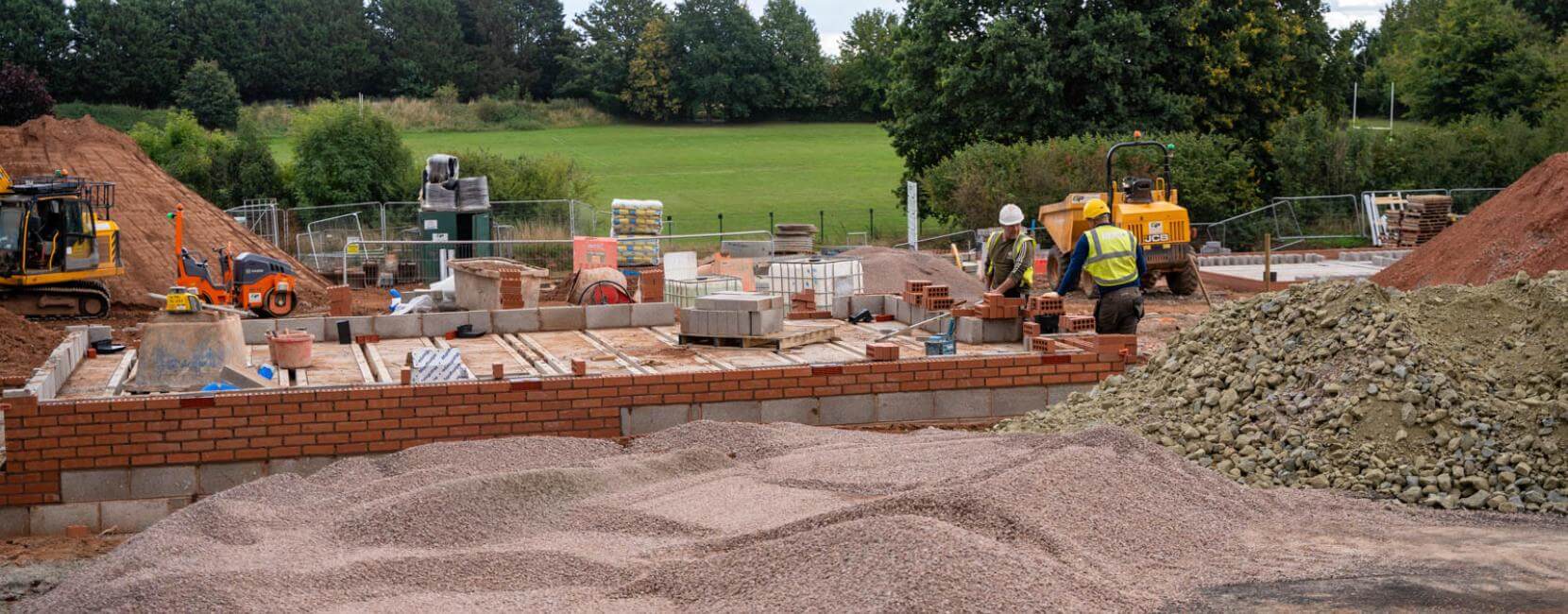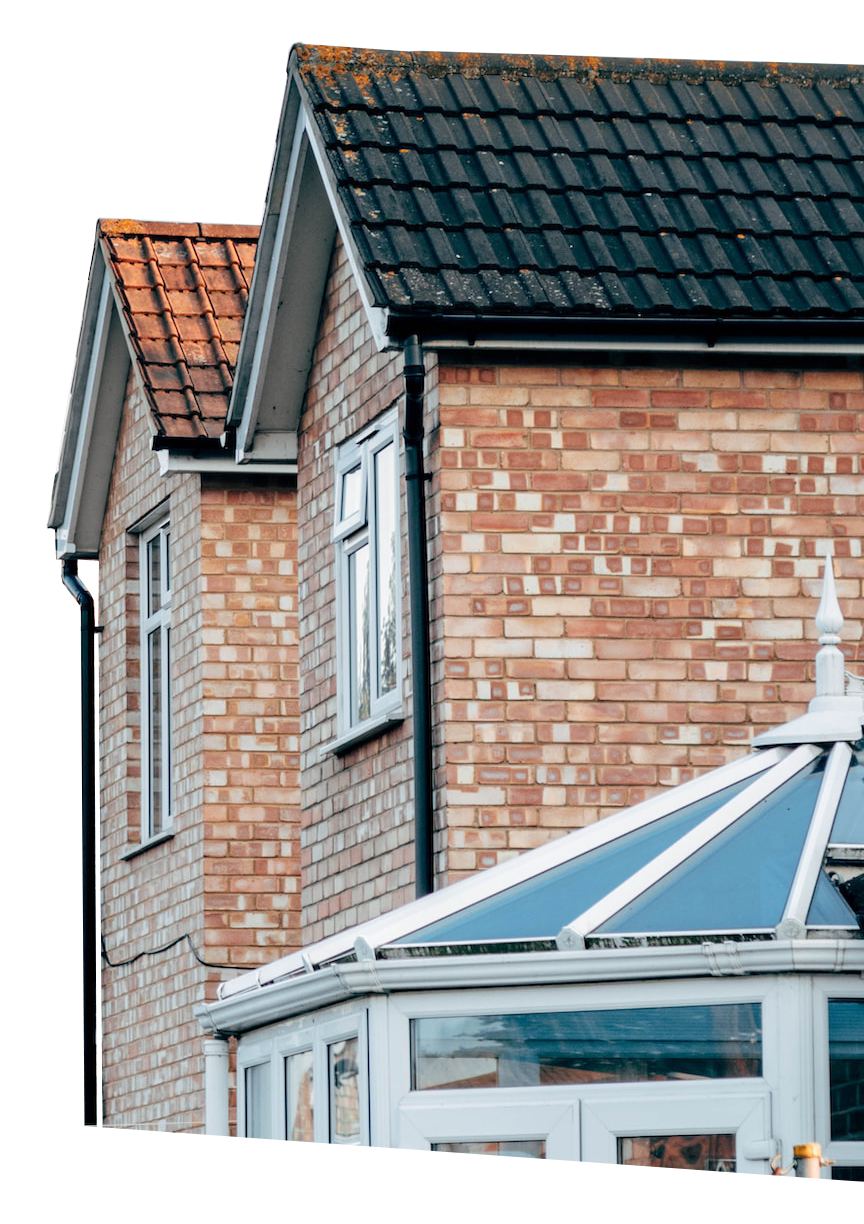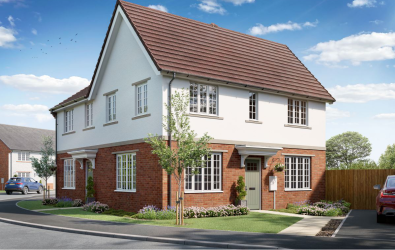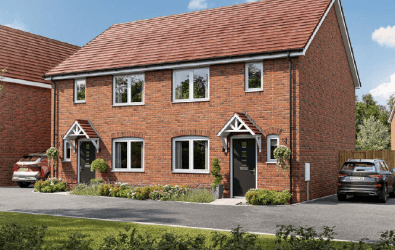
How to Buy Off-Plan Property
An increasingly popular way of buying a new house is via Off-Plan Property. While not strictly a scheme, buying Off-Plan may be more affordable for buyers whilst providing flexibility in terms of specification and plot choice.
Below we explore why you might choose Off-Plan Property and how to buy Off-Plan Property, with a detailed explanation of the purchase process.
Why Choose Off-Plan Property?
When you buy Off-Plan Property, you stand to benefit from several unique positives.
While the purchase process itself is similar to a traditional house purchase, the property you're buying isn't actually completed yet. This means that you get some say in how it's built, the property you opt to buy and stand a chance to benefit from what happens between purchase and completion.
The majority of developers give buyers the opportunity to choose the fixtures and fittings - such as flooring - that goes into the property, allowing you to have some say in the finished product.
Off-Plan Property buyers also stand to benefit from house prices going up in between purchase and completion. While you may purchase at one price point, there's always a chance that prices in the local area increase during build and by the time you move in, your house is already worth more than what you paid!
It's vital to research exactly where you're buying with Off-Plan Property and we always recommend speaking with a financial professional during the purchase process. That said, buying Off-Plan Property can be an extremely positive experience and offer plenty of opportunities for new homebuyers.
Purchase a property prior to completion

Choose your ideal plot, fixtures and fittings

10 year build warranty on all new homes

How to Buy Off-Plan Property
When you’re thinking about buying an off-plan property, there’s no set process that you have to follow. The process is different for everyone and depends on your personal circumstances.
That said, there are some fundamental steps that you can take to ensure a smooth and positive buying experience:
Research your developers and developments
Proper research, sometimes referred to as due diligence, is one of the most important aspects of buying a property off-plan. You should begin the process by finding new developments in your desired areas and exploring the features they offer. Once you’re satisfied with the property, research the developer.
Take a look at their track records such as how long they’ve been in business, the previous projects they’ve completed and any reviews you can find online. By building this knowledge, you’re more likely to avoid challenges down the line and also feel more confident during the process.
When you’re making your initial enquiries, ask questions. If you have any doubts or concerns at this stage, this is the time to speak directly with the other parties involved.
If you’re utilising a government initiative, check that the development is eligible for the scheme.
Consider your financing options
Once you have a development in mind, you need to source your financing. It’s always best to speak to a professional, such as a mortgage advisor, at this stage of the process.
They can help you find the right mortgage product for you and you may be able to acquire an ‘Agreement in Principle’. This is a confirmation that a lender is willing to work with you and helps you demonstrate your commitment to developers.
Make an offer on the development
Once you’ve found the ideal development, you’re in the position to make an offer. This is typically where off-plan property purchases differ slightly as you’ll be asked to put down a non-refundable reservation fee. The reservation fee is a confirmation that you want to buy the property and means the developer won’t sell the plot to anyone else while you get a mortgage in place.
At this stage, you may also have the option to choose the various fixtures and fittings that make up the property - such as flooring, white goods and decoration. Make sure that the developer understands what you’re looking for so there is no chance of issues later down the line.
Appoint a solicitor or conveyancer
A conveyancer is a legal professional that helps you carry out any of the legal work involved in the off-plan property purchase. They work to ensure that everything is compliant and satisfactory with the development itself.
When you buy off-plan, there’s usually a 28-day deadline that the developer sets for the exchanging of contracts after the agreement of the sale. Your conveyancer or solicitor can help you with this stage of the process, although it’s vital that you do your own research to avoid any nasty surprises.
Finalise your mortgage agreement
While this is all taking place, continue to work with your mortgage advisor and lender to finalise your mortgage agreement. If you’re operating as part of a government initiative, your lender will help you through this process.
At this stage, the lender typically arranges a valuation of the property using plans from the developer, which determines the value of the property measured against how much you’re borrowing.
Finalise your paperwork
At this stage you’ll work alongside your conveyancer to complete any associated paperwork within the deadlines set by the developer. Your legal partner will then facilitate the exchange of any contracts and support the payment of the deposit, which is usually around 10 - 20% of the overall purchase price.
Plan your house move
Once all of the above steps are completed, you're close to the end of the process. There are two key dates to have in mind at this point. The first is your ‘build completion’ date, which is when the developer expects the property to be completed and you’ll be allowed to move in. The second is the ‘long-stop date’, which is the date the developer expects the property to be completed at the latest.
On the completion date, you’ll then pay the remaining balance associated with the property and receive your keys.
What is the Exchange Process Like for Off-Plan Property?
What is the Exchange Process for Off-Plan Property?
Developers generally insist on a deadline of 28 days for an exchanging of contracts after the reservation fee is paid.
This means it's vital to instruct your solicitor or conveyancer quickly during this time, which is why we recommend choosing legal support that has experience working in property or even specialises in Off-Plan Property.
When you exchange, you pay a deposit - usually a minimum of 10% of the property purchase price.
This is considered a legal commitment to the property purchase, so always speak with a finance and legal professional beforehand. You may want to have a 'get out' clause in case something goes wrong during the build process.





